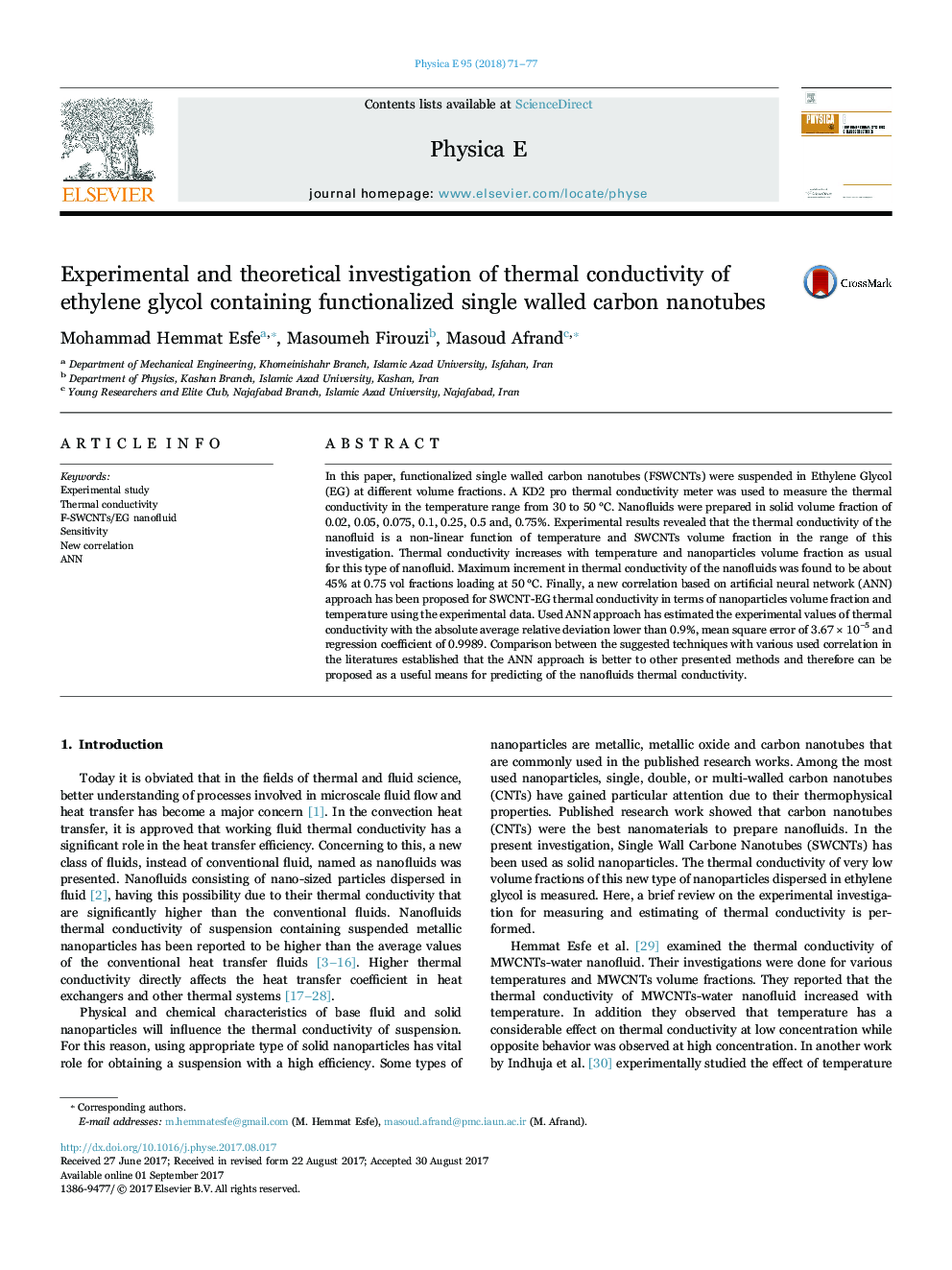| Article ID | Journal | Published Year | Pages | File Type |
|---|---|---|---|---|
| 5450054 | Physica E: Low-dimensional Systems and Nanostructures | 2018 | 7 Pages |
â¢Functionalized Single Walled Carbon Nanotubes were suspended in Ethylene Glycol (EG).â¢By adding 0.75% SWCNTs to ethylene glycol thermal conductivity can be increased to 45%.â¢ANN technique is a suitable approach to predict the thermal conductivity of nanofluids.â¢A new correlation based on ANN technique has been provided as a function T and Ï.
In this paper, functionalized single walled carbon nanotubes (FSWCNTs) were suspended in Ethylene Glycol (EG) at different volume fractions. A KD2 pro thermal conductivity meter was used to measure the thermal conductivity in the temperature range from 30 to 50 °C. Nanofluids were prepared in solid volume fraction of 0.02, 0.05, 0.075, 0.1, 0.25, 0.5 and, 0.75%. Experimental results revealed that the thermal conductivity of the nanofluid is a non-linear function of temperature and SWCNTs volume fraction in the range of this investigation. Thermal conductivity increases with temperature and nanoparticles volume fraction as usual for this type of nanofluid. Maximum increment in thermal conductivity of the nanofluids was found to be about 45% at 0.75 vol fractions loading at 50 °C. Finally, a new correlation based on artificial neural network (ANN) approach has been proposed for SWCNT-EG thermal conductivity in terms of nanoparticles volume fraction and temperature using the experimental data. Used ANN approach has estimated the experimental values of thermal conductivity with the absolute average relative deviation lower than 0.9%, mean square error of 3.67 à 10â5 and regression coefficient of 0.9989. Comparison between the suggested techniques with various used correlation in the literatures established that the ANN approach is better to other presented methods and therefore can be proposed as a useful means for predicting of the nanofluids thermal conductivity.
Graphical abstractDownload high-res image (138KB)Download full-size image
